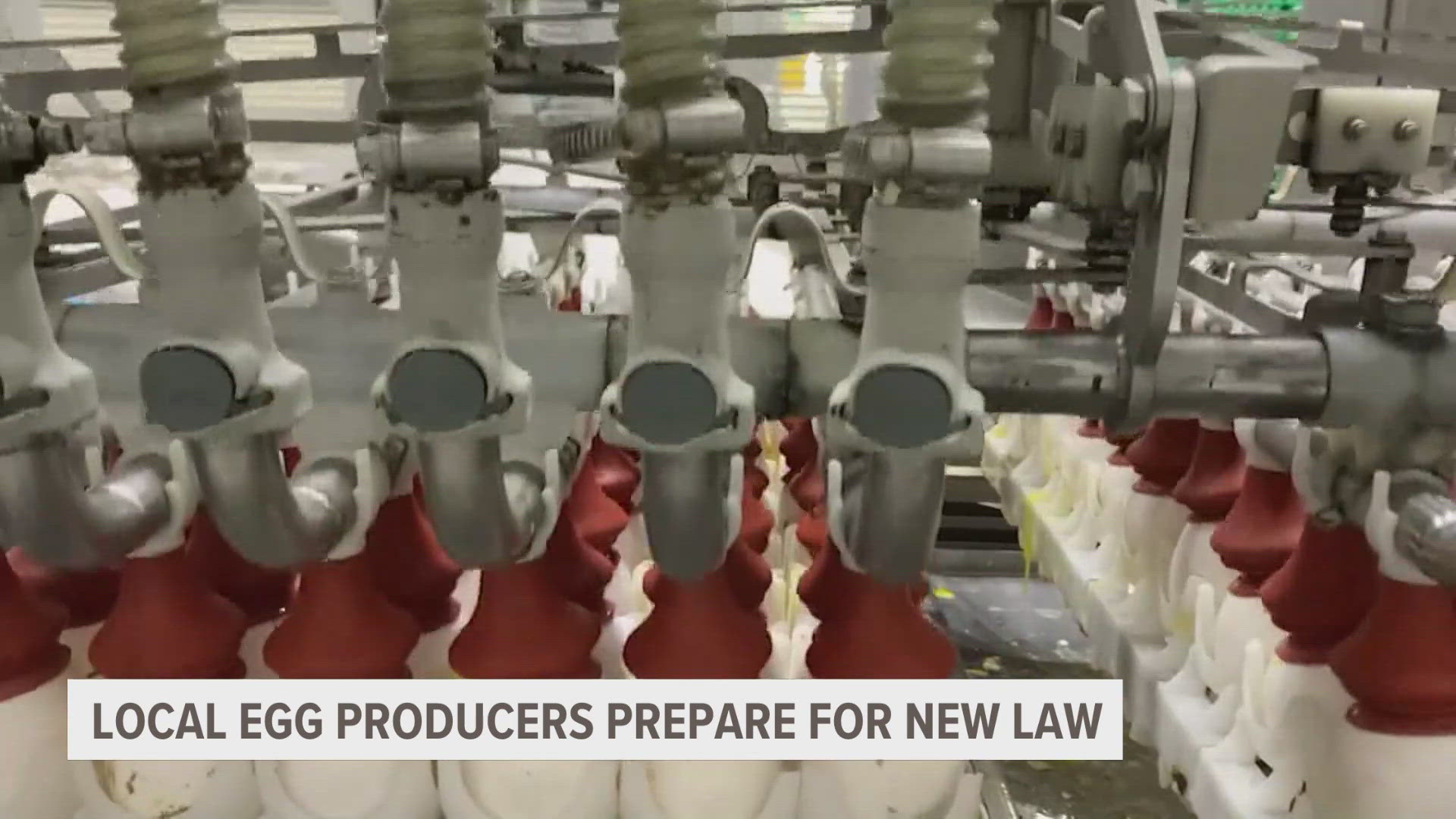GRAND RAPIDS, Mich. — You may have seen some signs posted around your local Meijer saying that the store will only carry cage-free eggs in the new year. So why is this, and why did the change happen?
The transition to cage-free eggs in Michigan began back in November 2019, when Lt. Gov. Garlin Gilchrist signed Public Act 132. The legislation requires that stores only sell shell eggs that come from farms with cage-free conditions for their hens beginning Dec. 31.
According to the U.S. Department of Agriculture (USDA), hens must be able to roam freely and have access to unlimited food and water in order for their living conditions to be considered cage-free. Hens should also be given enrichment to encourage natural behavior.
"Michigan's egg farmers have been working diligently for many years to reach full cage-free egg production, to meet both changing customer needs and the pending state law in Michigan," said Dr. Nancy Barr, Executive Director of Michigan Allied Poultry Industries. "Our industry has been both responsive and responsible in expanding cage-free production in Michigan and nationwide."
Dr. Barr says egg producers in Michigan have been undergoing infrastructure changes to laying houses, and houses where young hens are raised.
Amidst concerns of rising consumer egg prices, Dr. Barr says wholesale egg prices are not determined by farmers, but rather the commodity market as the U.S. egg supply has been hard hit by the Avian Flu.
"The U.S. egg supply has been hard hit by highly pathogenic avian influenza (HPAI) this year, which is disrupting the egg market and is impacting egg prices across the country. Even so, eggs are still a great value when compared with other sources of healthy proteins," said Dr. Barr.
After signing the legislation, Gilchrist said the measure will ensure Michigan’s standards for protecting animal welfare are among the strongest in the U.S. while ensuring egg producers can thrive.
Public Act 132 applies only to eggs that are intended for human consumption. It applies to all egg-laying hens, including chickens, turkeys, ducks, geese or guinea fowl.
The law only applies to operations with at least 3,000 egg-laying hens.
Business owners were required to update how their hens were kept to be compliant with the law. There are now just days left to do so. Businesses selling eggs will be asked to get written confirmation that their egg suppliers are following the cage-free law.
That confirmation can be requested from the Michigan Department of Agriculture and Rural Development (MDARD).
Michigan was the fifth state to pass cage-free egg requirements.

